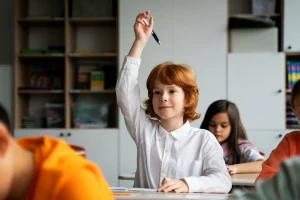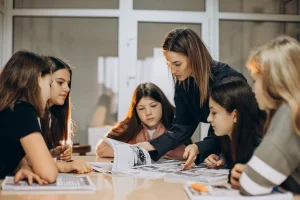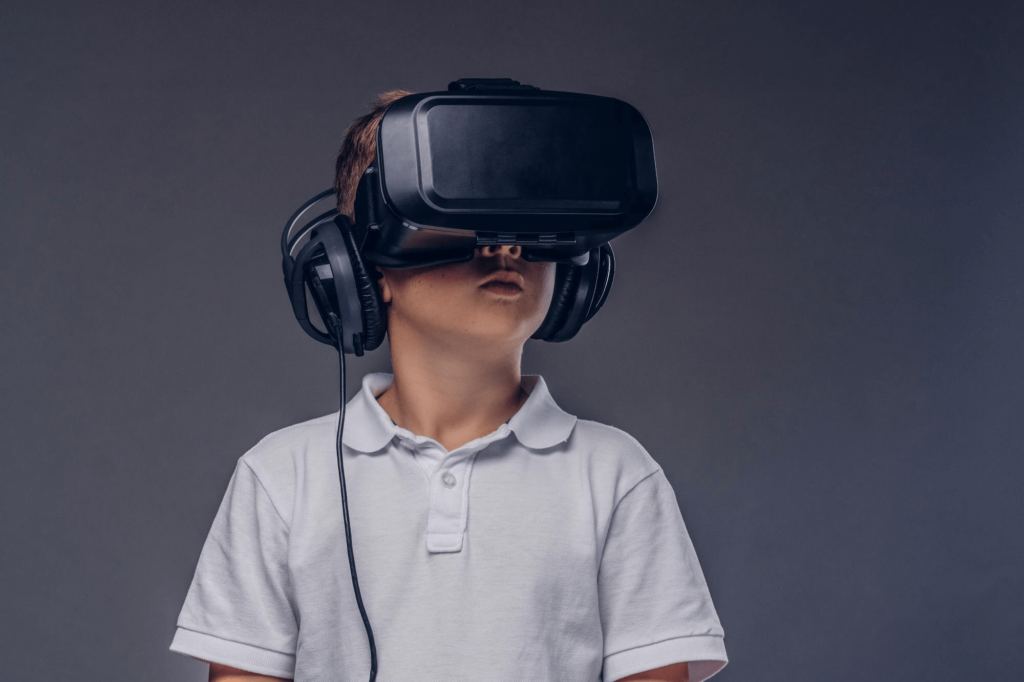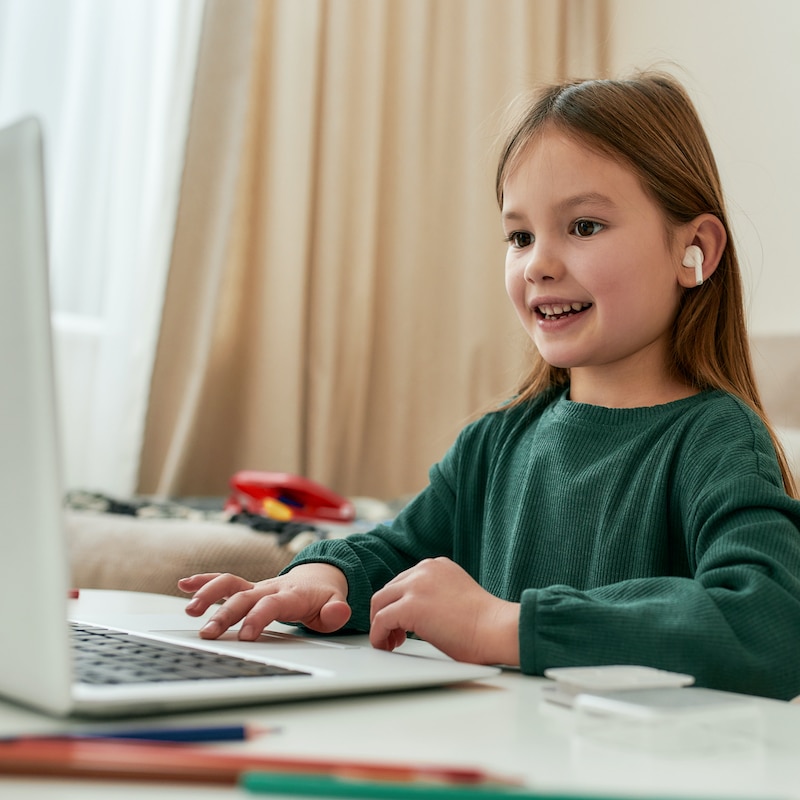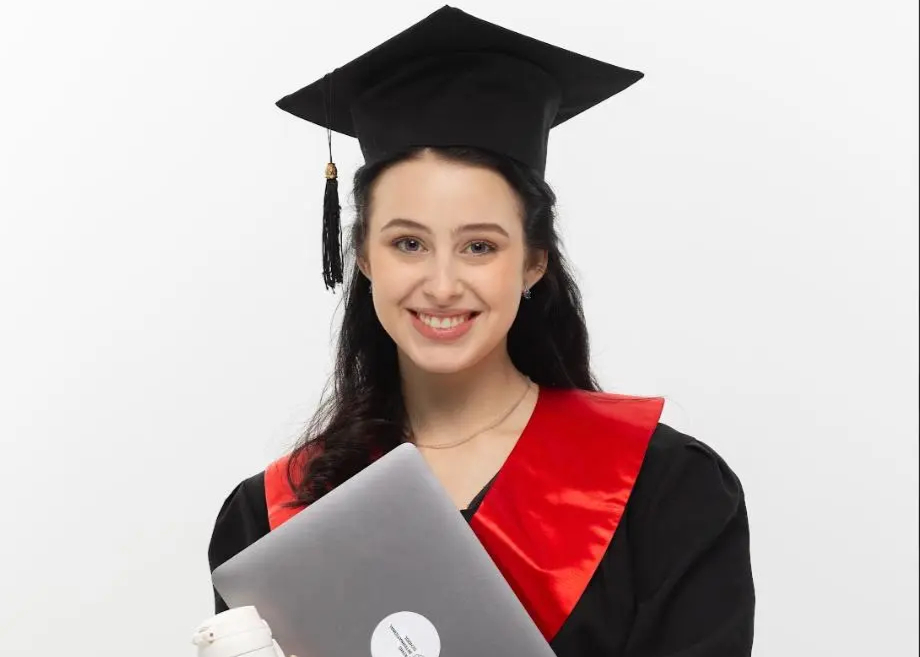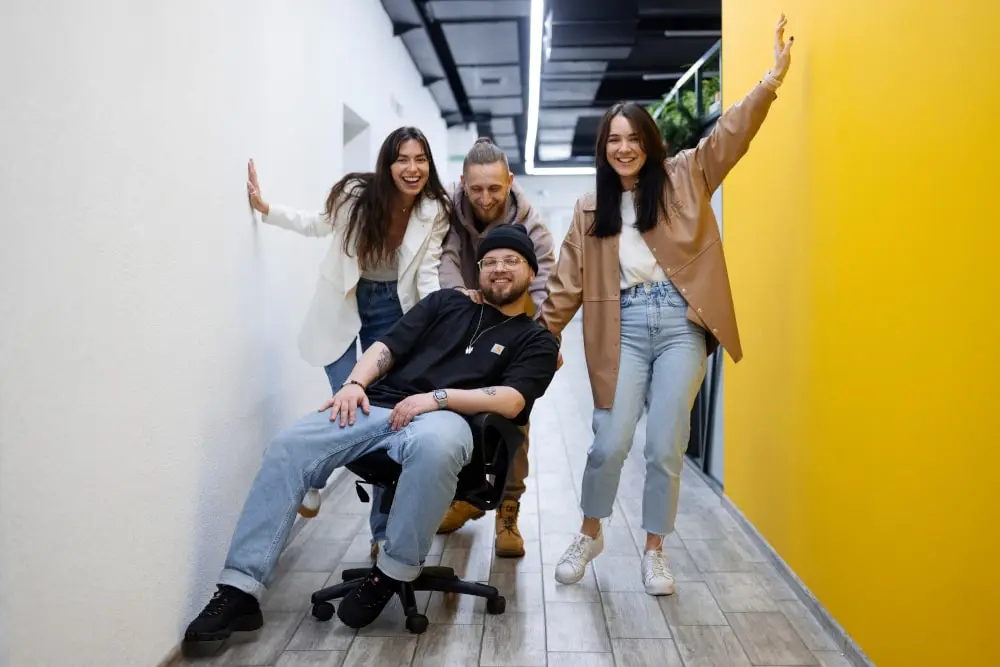Professional Development Courses for Educators
Effective pedagogical tools, advice, and learning materials from PRACTITIONERS – all for immediate use in your work right after completing the course
- Minimum Theory
- Concrete Examples
- Useful Links for Self-Study


Course Programs
Course: “Behavioral Approach in Teaching Children with Special Educational Needs”
For teachers of general education institutions, teaching assistants, educators, correctional teachers, speech therapists, psychologists, and parents.
Objective: To familiarize participants with the fundamental principles of the behavioral approach and to activate the practice of applying methods for correcting undesirable behavior in children within the framework of inclusive education.
- 23 sessions;
- Thematic testing;
- Systematization of the main principles of the behavioral approach to teaching children with special educational needs;
- Mastery of the basic methods for correcting undesirable behavior in the context of inclusive education;
- Enhancement of competencies in social, ethical, health-preserving, inclusive, psychological, subject-methodological, predictive, and reflective areas.
Course: “Fundamentals of Digital Literacy for Teachers”
For teachers of various subjects, teaching assistants, methodologists, heads of general education institutions, and specialists from centers for the professional development of educators.
Objective: To provide scientific-methodological and practical assistance to educators in general secondary education institutions regarding the use of modern information and communication technologies, to facilitate the digitalization of the educational process, and to develop the practice of using relevant online tools in distance learning in schools.
- 19 sessions;
- Thematic testing;
- Familiarization with modern trends in implementing cloud technologies and Google services in the educational process;
- Development of skills in using information and communication technologies and multimedia content, and creating original didactic materials (texts, tables, multimedia presentations);
- Enhancement of competencies in leadership, social, information-digital, subject-methodological, organizational, project design, and innovation areas.
Course: “Modern Educational Tools for Computer Science Teachers: Working with Gifted Students”
For computer science teachers, methodologists, heads of general education institutions, and specialists from centers for the professional development of educators.
Objective: To provide scientific-methodological and practical assistance to computer science teachers in general secondary education institutions for planning and organizing the content of teaching.
- 19 sessions;
- Thematic testing;
- Familiarization with examples of implementing innovative technologies in the educational process, and the basics of programming in C++ and Python;
- Development of skills for creating subject-specific internet resources for computer science teachers and organizing educational activities for solving tasks related to the “databases” module;
- Enhancement of competencies in social, information-digital, subject-methodological, organizational, and innovation areas.
Course: “Modeling Lessons in ‘History of Ukraine’ (New Ukrainian School)”
For history teachers, teaching assistants, deputy directors for educational and methodological work, heads of general secondary education institutions, and specialists from centers for the professional development of educators. (Based on the model educational program “Exploring History and Society: Grades 5-6 (Integrated Course)” for general secondary education institutions authored by Vasylkyv I.D., Dymiy I.S., and Sheremeta R.V.)
Objective: To familiarize participants with the prerequisites for the successful implementation of the recommended model programs by the Ministry of Education and Science of Ukraine in the context of the New Ukrainian School, to disseminate successful authorial practices of implementing edutainment in history lessons to develop key competencies in students, and to motivate teachers to update their teaching and educational methodologies.
- 19 sessions;
- Thematic testing;
- Familiarization with the procedure for developing and approving an authorial program based on the model program, the peculiarities of organizing history lessons in the context of the New Ukrainian School, considering distance learning and inclusion;
- Mastery of innovative edutainment methodologies;
- Enhancement of competencies in civic, social, communicative, language-communicative, subject-methodological, information-digital, inclusive, project design, organizational, evaluative-analytical, and innovative areas.
Course: “Subject-Language Integration in Primary Education”
For primary school teachers, foreign language teachers in primary schools, methodologists, and heads of general education institutions.
Objective: To promote the development of subject-language integration in New Ukrainian School (NUS) classrooms.Мета: сприяти розвитку предметно-мовної інтеграції у класах НУШ.
- 20 sessions;
- Thematic testing;
- Familiarization with the peculiarities of integration in the educational process (theory and practice), rules for selecting and creating methodological materials for implementing subject-language integration in the context of NUS;
- Development of skills in creating educational content using a foreign language as a means of integration;
- Enhancement of competencies in social, emotional-ethical, language-communicative, subject-methodological, project design, predictive, and reflective areas.
Course: “Exploring Geographical Names as a Means of Student Socialization”
For geography (natural sciences) teachers, methodologists, and heads of general education institutions.
Objective: To familiarize participants with authorial methodological developments for organizing student research on the geographical names of their native land and to contribute to the updating of educational content.
- 20 sessions;
- Thematic testing;
- Familiarization with theoretical foundations and practical authorial recommendations for organizing student research on geographical names of their native land (or any other territory) in general secondary education institutions;
- Development of skills for the applied use of toponyms in lesson design;
- Enhancement of competencies in civic, ecological, social, digital, subject-methodological, emotional-ethical, organizational, pedagogical partnership, reflective, and research areas.
Course: “Cool Games as an Innovative Methodology in Physical Education Classes”
For physical education teachers.
Objective: To familiarize participants with new methodologies for conducting physical education lessons
- 18 sessions;
- Thematic testing;
- Familiarization with the main principles of organizing and the rules of relays;
- Development of a value-based attitude towards personal health, acquiring health-preserving competence, and fostering a sustainable motivation for a healthy lifestyle and physical activity;
- Enhancement of the quality of physical education lessons and the transition to new, youth-engaging, and vibrant forms of conducting these lessons.
Cost of One Course
500 UAH
- Minimum Theory
- Practical Examples
- Useful Resources for Self-Learning
Certificate Issuance Registry The database is incomplete (as of today, we have issued 60 certificates: 37 in 2022, 14 in 2023, and 9 in 2024).
How Learning Takes Place
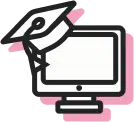
Format
Online Video Course with Automated Testing for Self-Assessment
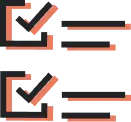
Accessibility
Recordings of all sessions are available for ongoing access, allowing participants to review the material.

Scope
30 hours (1 ECTS credit)
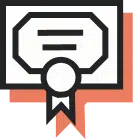
Certificate
A participant certificate is automatically generated as a PDF file upon completion of the final assessment and is sent via email.
Online learning is a unique opportunity for primary school students to receive general secondary education in an environment they create themselves.
Choose the appropriate package, make the payment, and improve, with the support of teachers from the ‘Atmospheric School’.
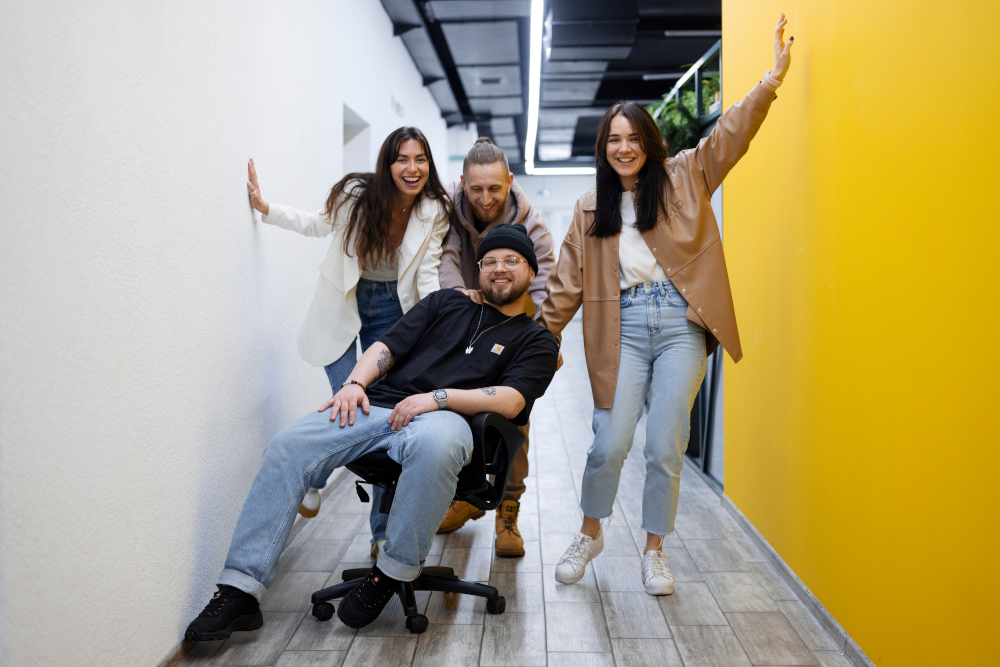
We are constantly striving to improve the quality of education. We would be happy to hear your feedback and suggestions.
